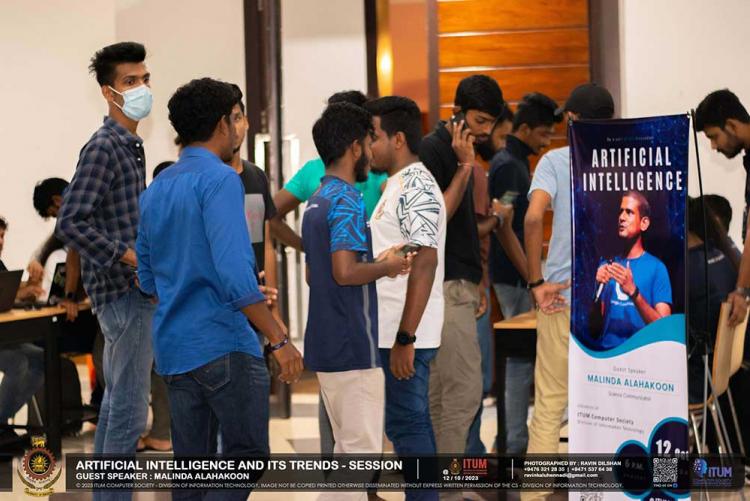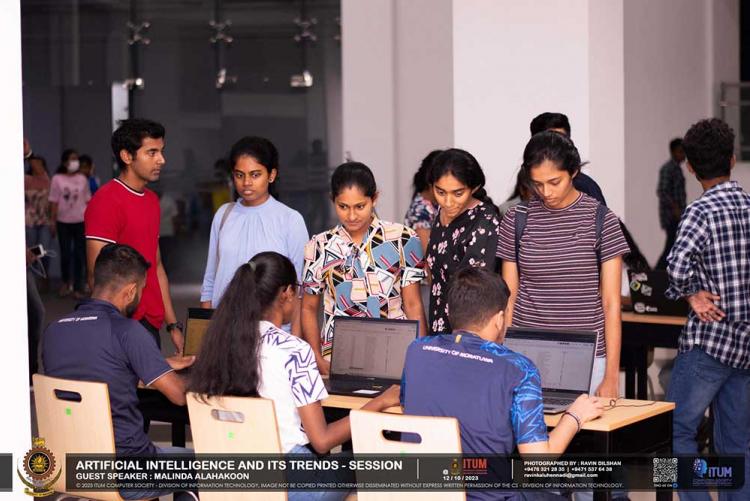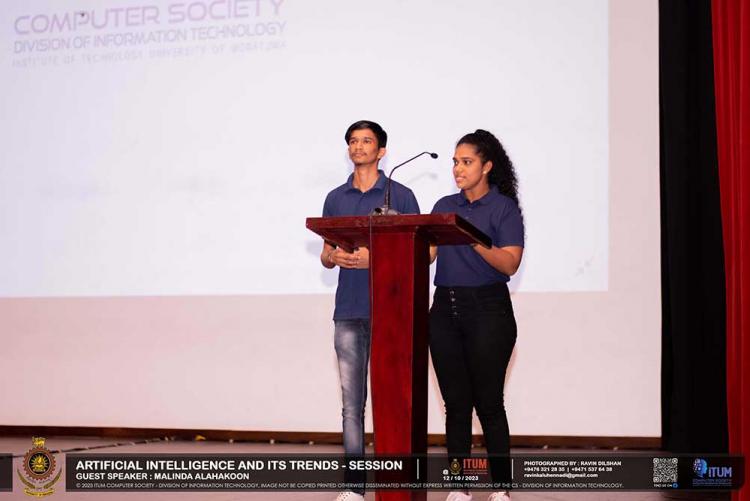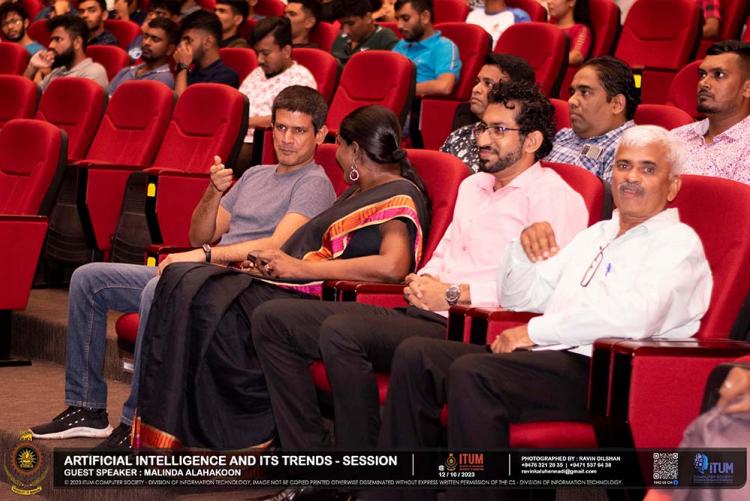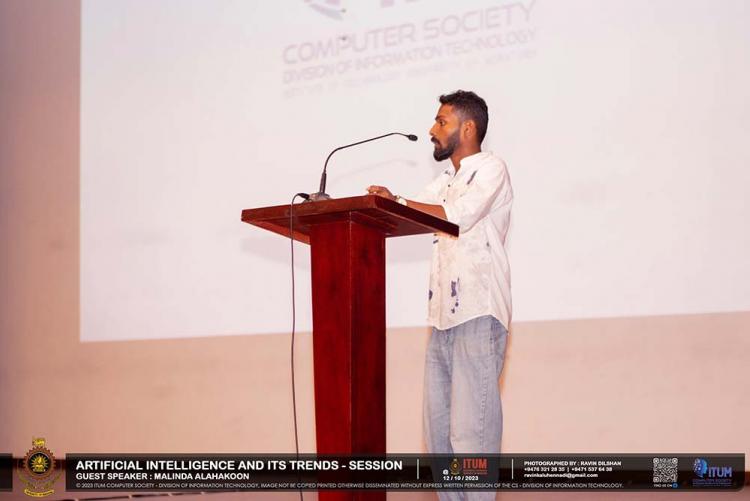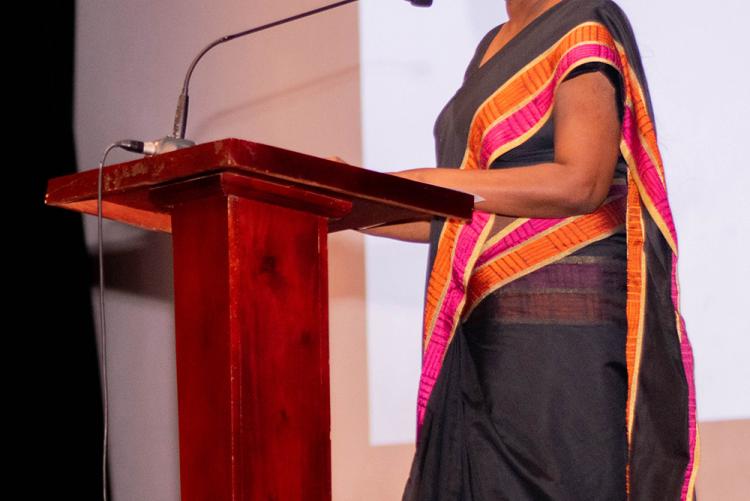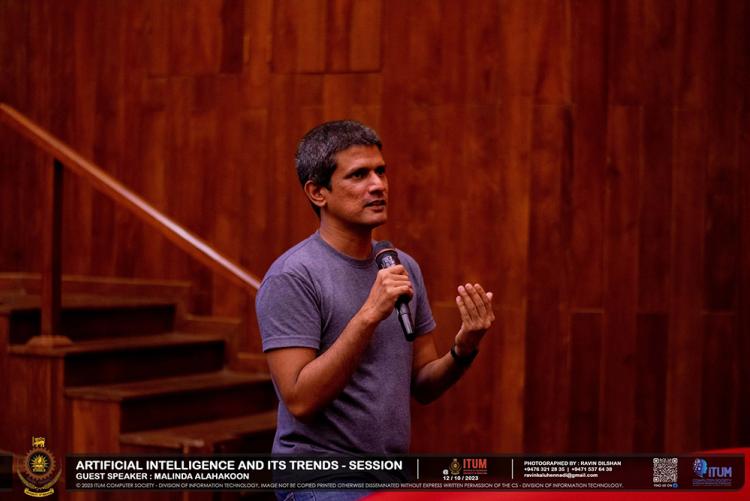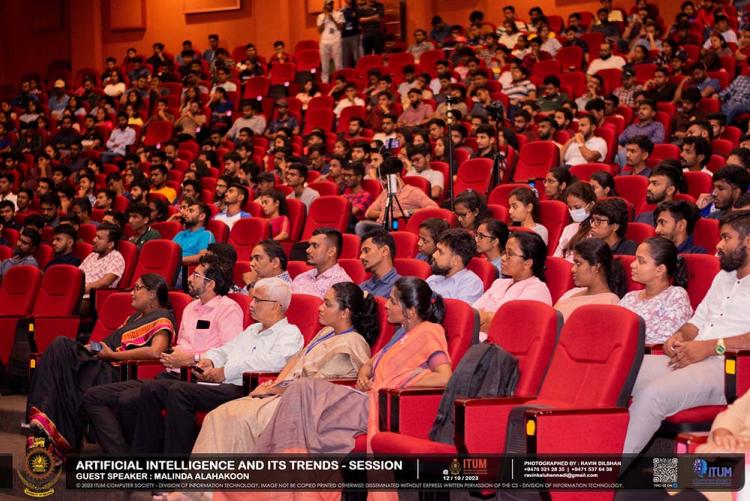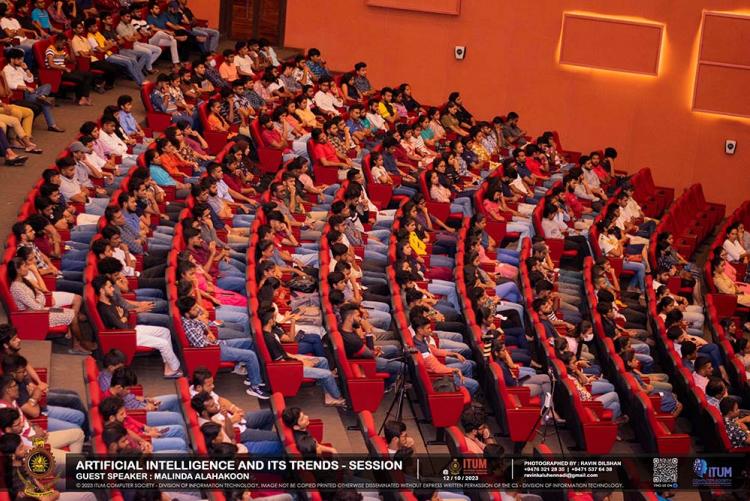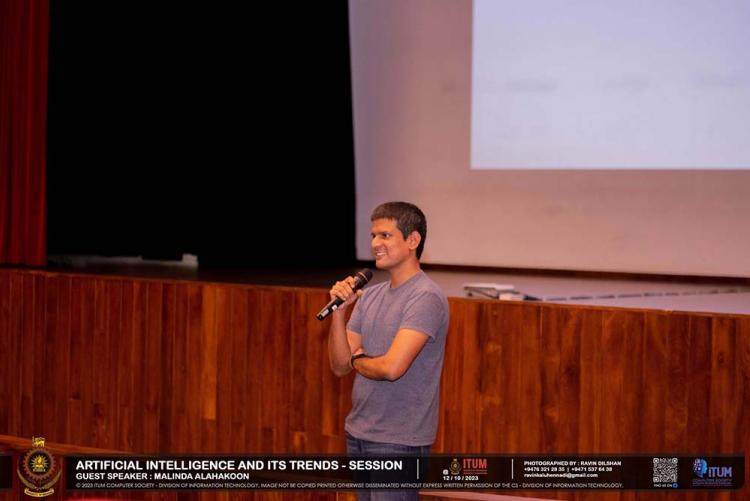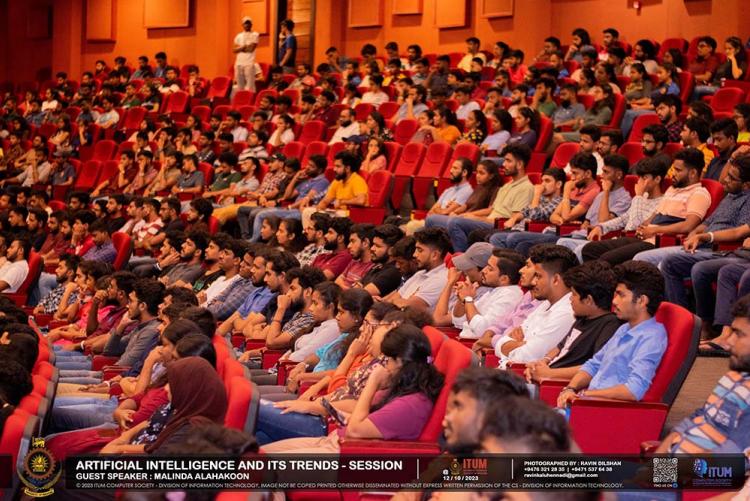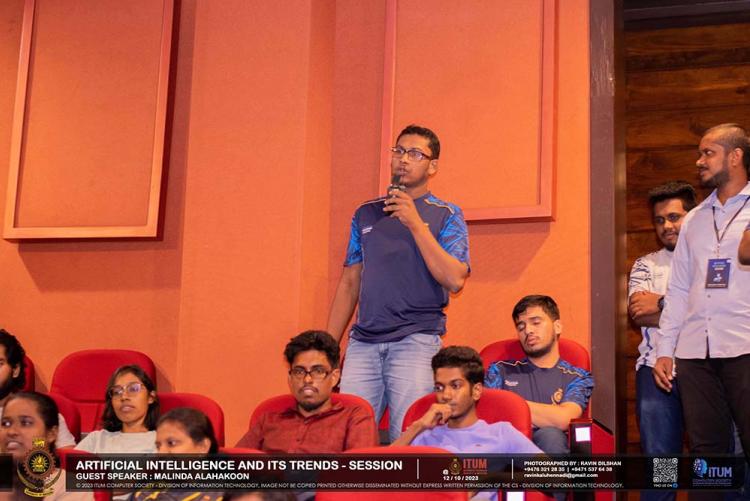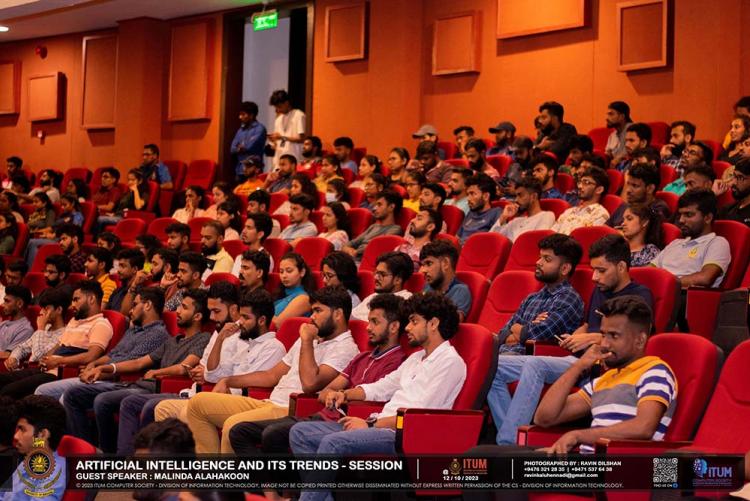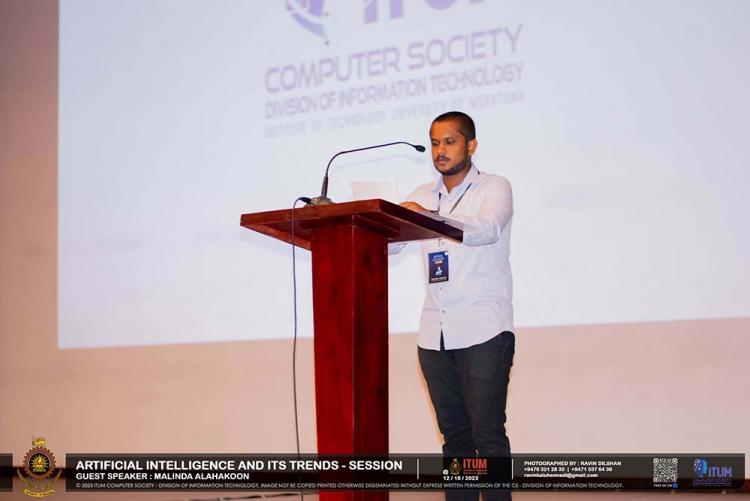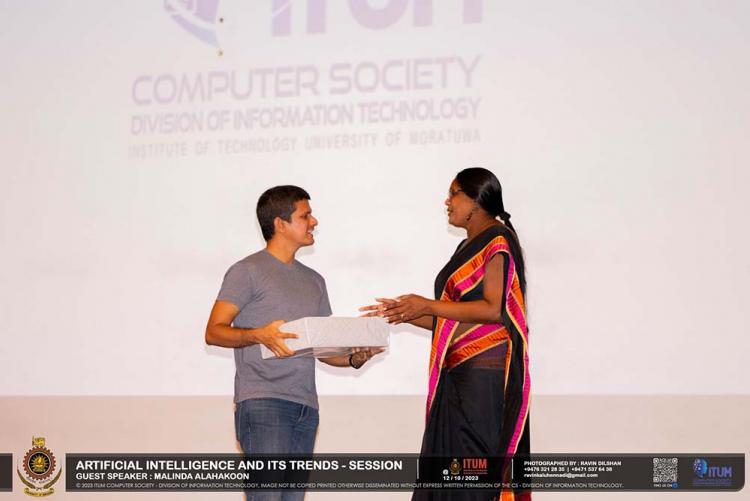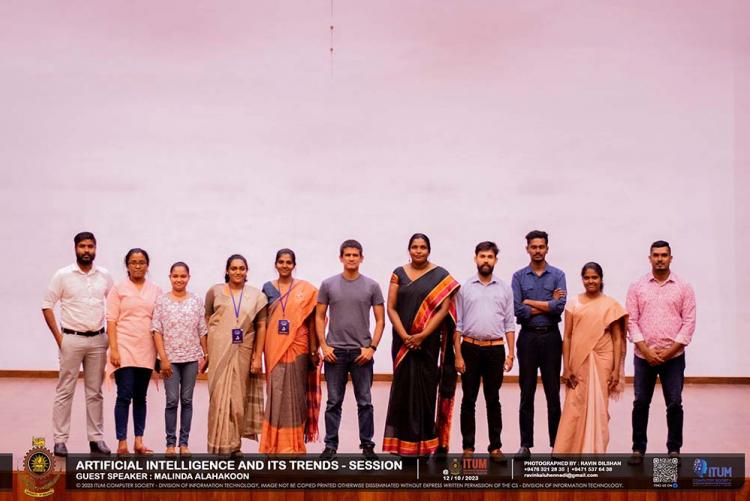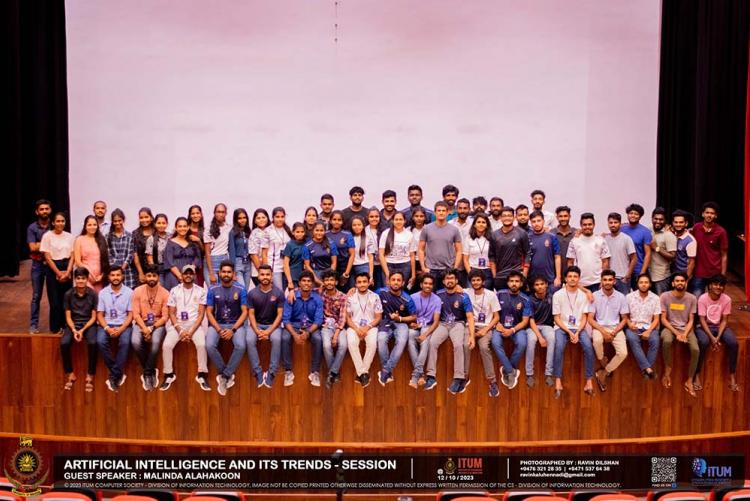TAG Gunasekara Multi-functional Hall at the ITUM
TAG Gunasekara Multi-functional Hall at the ITUM
On the evening of October 12, 2023, the Division of Information Technology at the University of Moratuwa embarked on an expedition into the captivating realm of Artificial Intelligence (AI). This insightful session, organized by the ITUM Computer Society within the Division of Information Technology, signifies a significant milestone in our quest for knowledge.
Under the guidance of Dr. (Mrs.) Kalpana Galappaththi, Head of the Division, this event was seamlessly orchestrated by Ms. Naduni Jayathilaka and Ms. Sithara Madhubashini, ensuring a valuable experience for all participants.
This enlightening event showcased Mr. Malinda Alahakoon, a distinguished science communicator, who adeptly guided the audience through the expansive landscape of AI. The event, hosted at the prestigious TAG Gunasekara Multi-functional Hall at the ITUM premises from 6.00 PM to 8.30 PM, provided a comprehensive overview of AI's applications and its evolution across diverse fields. The audience, including students from various ITUM divisions, esteemed faculty members, and division heads, numbered approximately 800. Mr. Alahakoon's insights illuminated AI's substantial impact on fields such as civil engineering, chemical engineering, electrical engineering, electronics engineering, mechanical engineering, polymer technologies, textile engineering, marine and nautical studies, and information technologies.
Nonetheless, this session transcended mere applications; it also delved into the ethical considerations and challenges encompassing AI. It underscored the significance of responsible and ethical AI development, nurturing essential discussions on this critical topic.
As the ITUM Computer Society in the IT Division reflects on this remarkable session, we extend our sincere appreciation to the Director of the Institute of Technology, University of Moratuwa. His approval, provision of essential resources, and active involvement significantly contributed to the event's resounding success. We also convey our profound gratitude to Mr. Malinda Alahakoon for his enlightening insights, for which we offer our sincerest thanks. Furthermore, our profound gratitude extends to Dr. (Mrs.) Kalpana Galappaththi for her visionary leadership and to Ms. Naduni Jayathilaka and Ms. Sithara Madhubashini for their invaluable coordination. We express our heartfelt thanks to all academic and non-academic staff for their invaluable contributions to the success of this event. This collaborative effort has undoubtedly left an indelible mark on our academic landscape, serving as an inspiration for future pursuits of knowledge and innovation.

